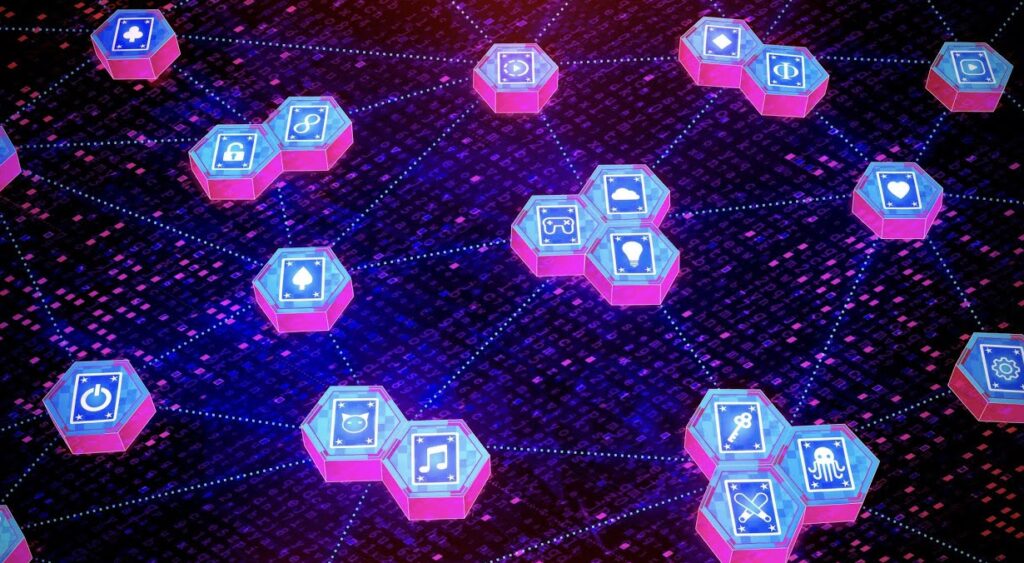Significantly, in the domains of artificial intelligence AI and Blockchain technologies, Giza, a creative AI platform, has declared the successful completion of $5.2 million in funding. With Giza poised to reinvent how AI solutions interact with distributed systems built on the Web3 protocol, this milestone points to a bright future for her. Giza wants to transform sectors from banking to healthcare by integrating the strengths of AI with Web3 and providing potent tools to stimulate innovation in the digital terrain.
Web3 and Artificial Intelligence
Web3 technology, a decentralised version of the internet, is gaining traction for its ability to put power back into the hands of users, allowing for greater control, transparency, and security. With the rise of blockchain and decentralised applications (dApps), Web3 rapidly transforms industries by creating new business opportunities to operate more efficiently and securely.

Decentralised AI Platform
Designed to use the Web3 protocol. Giza is an artificial intelligence platform that enables developers to create, train, and implement AI models in a distributed environment. Unlike conventional artificial intelligence systems dependent on centralised servers, Giza employs the blockchain to enable more open, safe, and effective handling of AI chores.
One of Giza’s main breakthroughs is peer-to-peer data sharing while protecting privacy and control over AI model training data. Conventional AI sometimes centralises data, raising problems about ownership, privacy, and use.
Blockchain-Driven AI Trust
The primary importance of blockchain on Giza’s AI system is that the distributed ledger of blockchain technology lets Giza create an open, tamper-proof environment fit for artificial intelligence operations. Blockchain’s unchangeable data enables the tracking and auditing of AI models developed on Giza. This function is vital in finance, healthcare, and supply chain management, which demand substantial degrees of responsibility.
Giza can design a fresh model of trust in artificial intelligence by applying blockchain. Because conventional systems use and process data opaquely, users may be dubious about the integrity of AI models. Blockchain verifies every stage of the artificial intelligence development and training process, thereby addressing prejudice, fraud, and data manipulation issues.
Giza’s Impactful Contribution
Giza’s $5.2 million contribution is essential to the platform’s future. This fundraising round, led by renowned AI and blockchain investors, shows confidence in Web3-integrated AI products. The funding will improve the platform’s infrastructure, token ecosystem, and user accessibility. With this funding, Giza may recruit top AI and blockchain developers, keeping the platform innovative.
Moreover, Giza’s financing success could significantly impact the broader Web3 and AI markets. As more companies and developers recognise the value of decentralised AI, Giza will likely serve as a model for future projects. This shift towards decentralised AI has the potential to accelerate the adoption of Web3 technologies and expand the limits of AI’s capabilities.
AI and Web3 Revolution
AI and Web3 have tremendous power to revolutionise sectors primarily dependent on data-driven procedures. In the financial industry, for instance, artificial intelligence can help to forecast market trends, spot fraud, and maximize investment plans. Giza lets Web3 enable these processes to be more open, safe, and distributed, fostering more confidence and cooperation among financial institutions.
Giza’s platform for patient care, pharmaceutical discovery, and tailored treatment can create healthcare AI models. Web3’s distributed nature allows healthcare practitioners to protect patient data while enabling academics to acquire helpful knowledge about medical development.
Giza’s AI skills and Web3 will help other logistics and supply chain management industries, and enter decentralised artificial intelligence. For example, it can monitor shipments, forecast demand, automate inventory, and optimise supply chains. In the energy industry, Web3 can offer safe and open monitoring of energy consumption and carbon credits, and artificial intelligence can help maximise power grid operations.
AI Web3 Innovation
Giza’s combination of artificial intelligence and the Web3 protocol tackles various vital issues in both domains. Data privacy issues and centralised control in conventional artificial intelligence models can result in monopolies and inefficiencies. Combining Web3 cryptographic decentralisation with AI’s ability to automate and examine data presents a fairer and more effective innovation model.

Decentralised AI Revolution
The success of Giza’s platform and its ability to secure significant financing suggest a growing interest in decentralised AI solutions as more businesses and developers explore Web3’s potential. With Giza leading the charge, we expect to see a wave of new AI platforms leveraging blockchain to offer more secure, transparent, and efficient services. The intersection of AI and Web3 is poised to reshape industries across the globe, from healthcare to finance, energy, and beyond.
Final thoughts
Distributed artificial intelligence reached a milestone with Giza’s $5.2 million funding. Giza is a pioneer in a fast-growing industry by merging Web3’s distributed nature with AI. Artificial intelligence and blockchain technology will likely be included as the platform evolves. They allow enterprises to offer more transparent, safe, and practical solutions to drive technical advancement.


